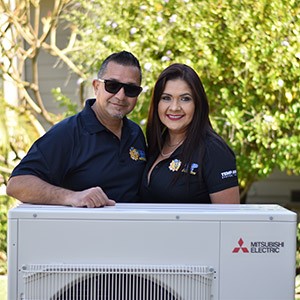When investing in HVAC equipment for your home, knowing the lifespan of your system is crucial for budgeting and planning future replacements. For homeowners in the Los Angeles area, understanding the longevity of your HVAC system can help you make informed decisions about maintenance, repairs, and replacements. Here’s a comprehensive guide on how long various HVAC components typically last and how you can maximize their lifespan.
The Average Lifespan of HVAC Components
- Air Conditioners
– Lifespan: 15-20 years
– Factors Affecting Longevity: Usage frequency, maintenance, and local climate. In Los Angeles, where air conditioning is essential for much of the year, regular maintenance can help your unit reach the upper end of its lifespan.
- Furnaces
– Lifespan: 15-30 years
– Factors Affecting Longevity: Type of furnace (gas vs. electric), maintenance routines, and installation quality. Gas furnaces tend to have a longer lifespan compared to electric ones.
- Heat Pumps
– Lifespan: 10-15 years
– Factors Affecting Longevity: Usage intensity, climate conditions, and maintenance. In areas with milder winters like Los Angeles, heat pumps can last longer due to less strain.
- Ductless Mini-Splits
– Lifespan: 15-20 years
– Factors Affecting Longevity: Usage patterns, maintenance, and installation quality. Regular cleaning and professional check-ups of mini-splits can ensure a long service life.
How to Maximize the Lifespan of Your HVAC Equipment
- Regular Maintenance
– Schedule annual check-ups with a professional HVAC technician. Regular maintenance can identify and fix minor issues before they become major problems, extending the life of your system.
- Change Filters Frequently
– Dirty filters can reduce the efficiency of your HVAC system and lead to premature wear and tear. Replace filters every 1-3 months, depending on usage and the type of filter.
- Keep the System Clean
– Ensure that outdoor units are free from debris, leaves, and other obstructions. Clean indoor components, such as coils and ducts, to maintain optimal airflow and efficiency.
- Invest in Quality Installation
– Proper installation is critical for the longevity of your HVAC system. Ensure you hire experienced professionals to install your system correctly.
- Use a Programmable Thermostat
– A programmable thermostat can reduce unnecessary strain on your HVAC system by optimizing temperature settings based on your schedule.
- Seal and Insulate Your Home
– Proper insulation and sealing can reduce the workload on your HVAC system by maintaining consistent indoor temperatures, leading to longer equipment life.
Signs It’s Time to Replace Your HVAC System
- Frequent Repairs
– If you’re calling for repairs more often than usual, it might be more cost-effective to replace your system.
- Increased Energy Bills
– A sudden spike in energy bills can indicate that your HVAC system is losing efficiency and may need to be replaced.
- Inconsistent Temperatures
– If your system struggles to maintain consistent temperatures, it might be nearing the end of its useful life.
- Strange Noises
– Unusual noises, such as banging, clanging, or grinding, can indicate serious issues within your HVAC system.
- Age of the System
– Consider replacing your system if it’s nearing the end of its typical lifespan, especially if it’s showing other signs of wear and inefficiency.
Conclusion
Understanding the expected lifespan of your HVAC equipment and how to maintain it can save you money and ensure your home remains comfortable year-round. For homeowners in Los Angeles, where temperatures can vary significantly, taking proactive steps to care for your HVAC system is essential. Regular maintenance, prompt repairs, and knowing when to replace your equipment can help you get the most out of your investment.
For all your HVAC needs, from installation to maintenance and repairs, contact Temp Air Heating & Cooling. Our experienced technicians are dedicated to providing top-notch service to keep your home comfortable and your HVAC system running smoothly.
—
By optimizing the longevity and efficiency of your HVAC system, you can enjoy a comfortable home environment and save on energy costs. Schedule your next maintenance appointment with Temp Air Heating & Cooling today!



